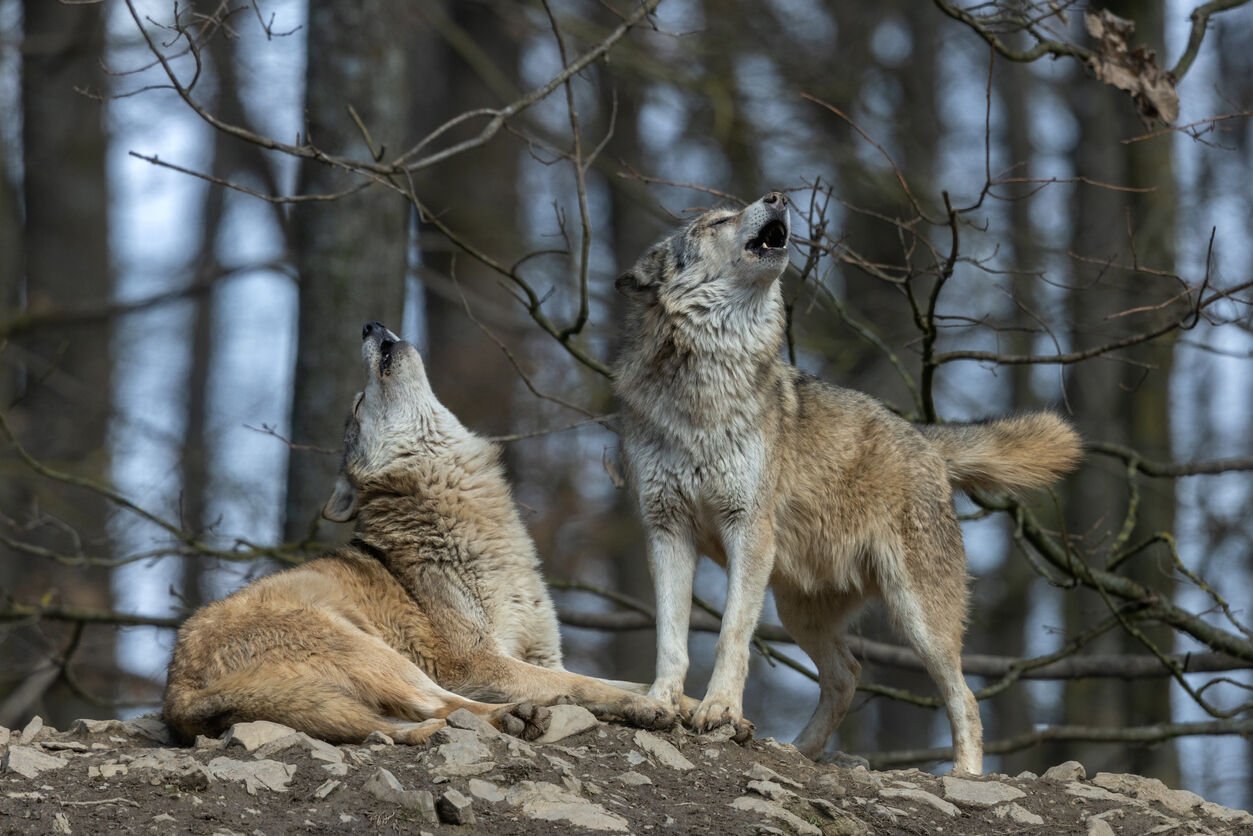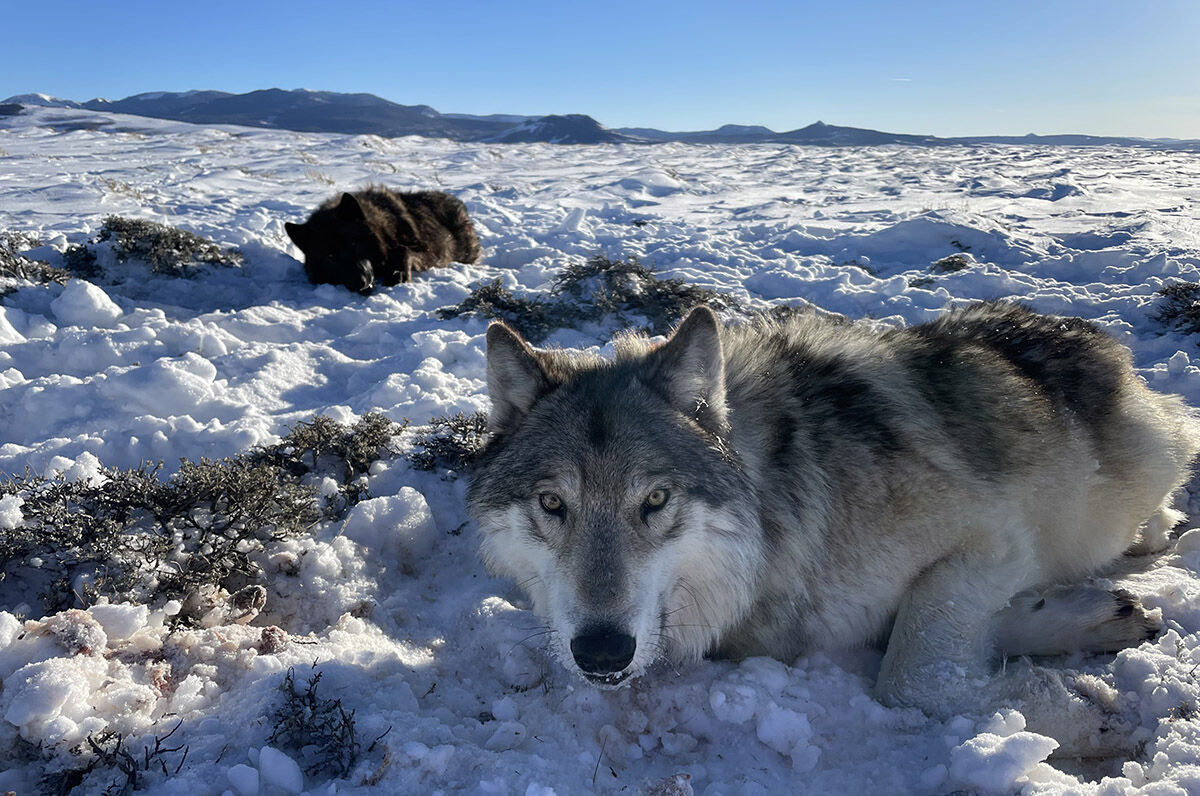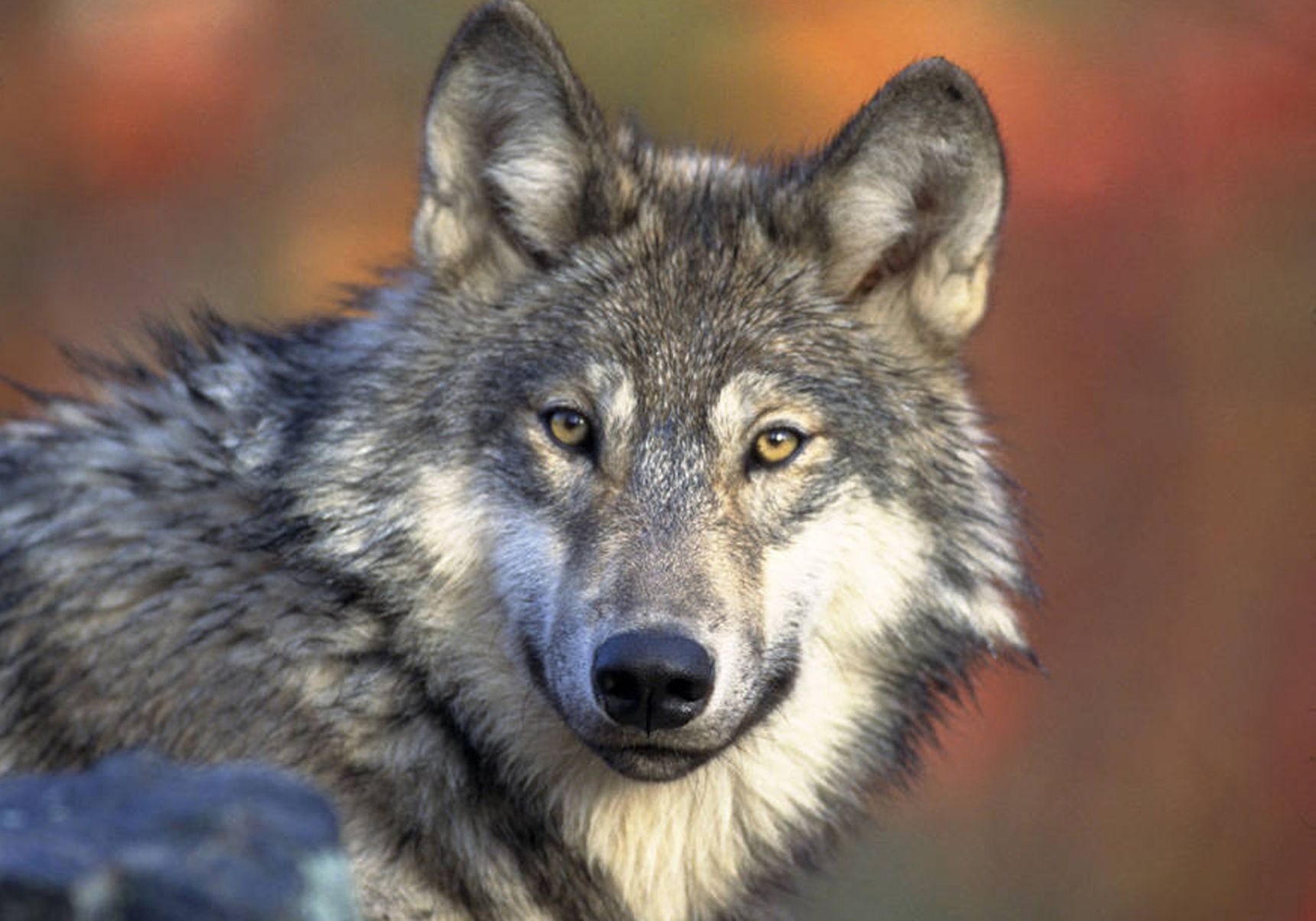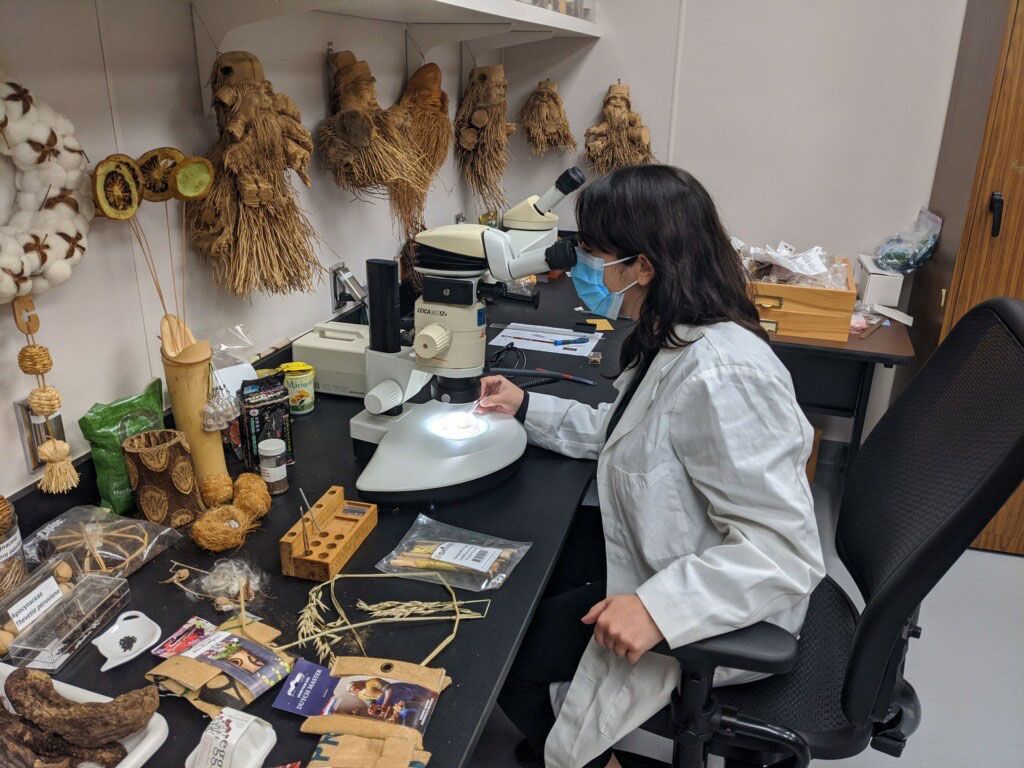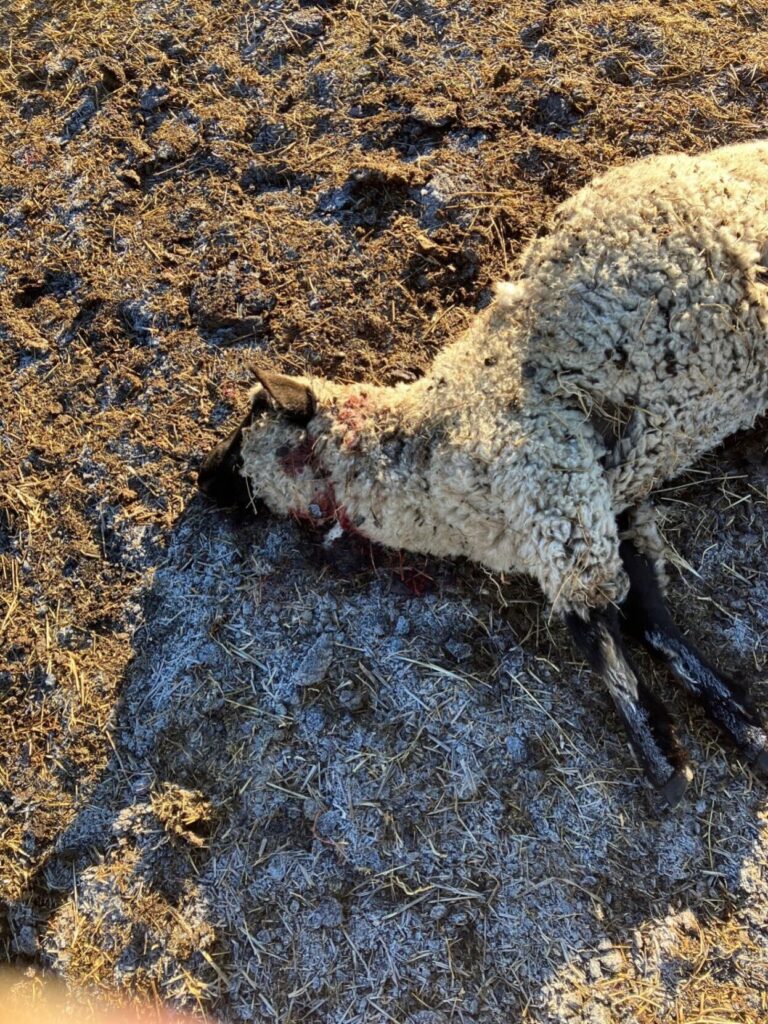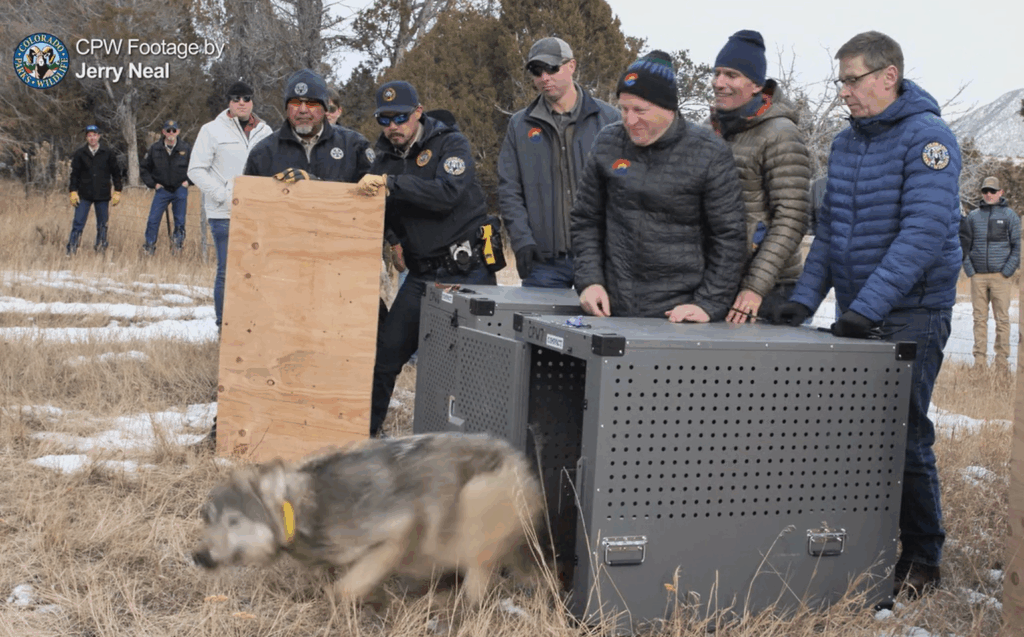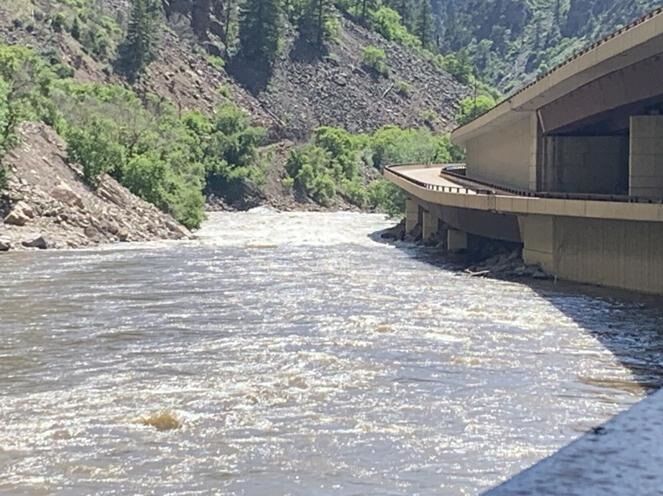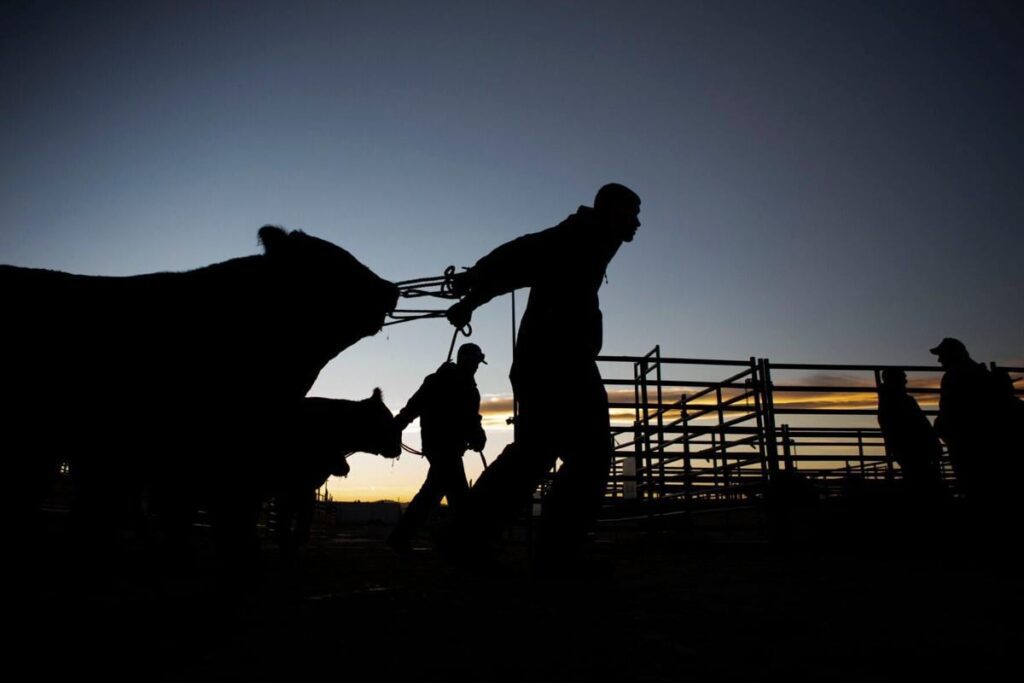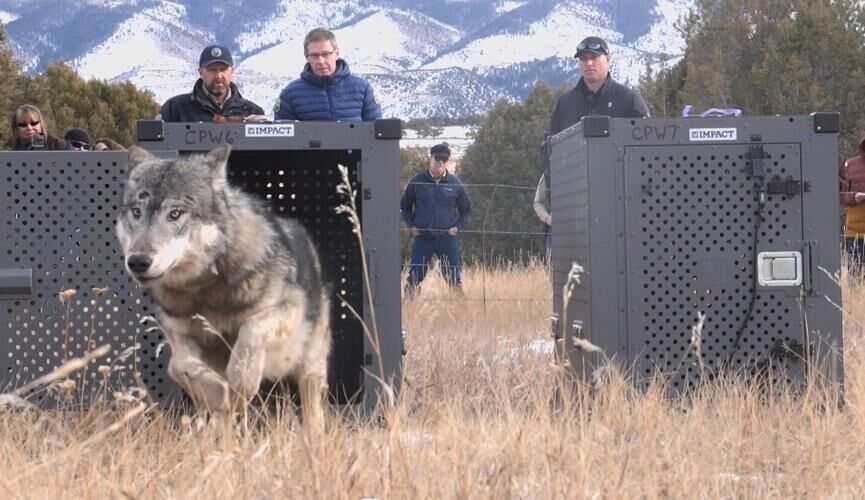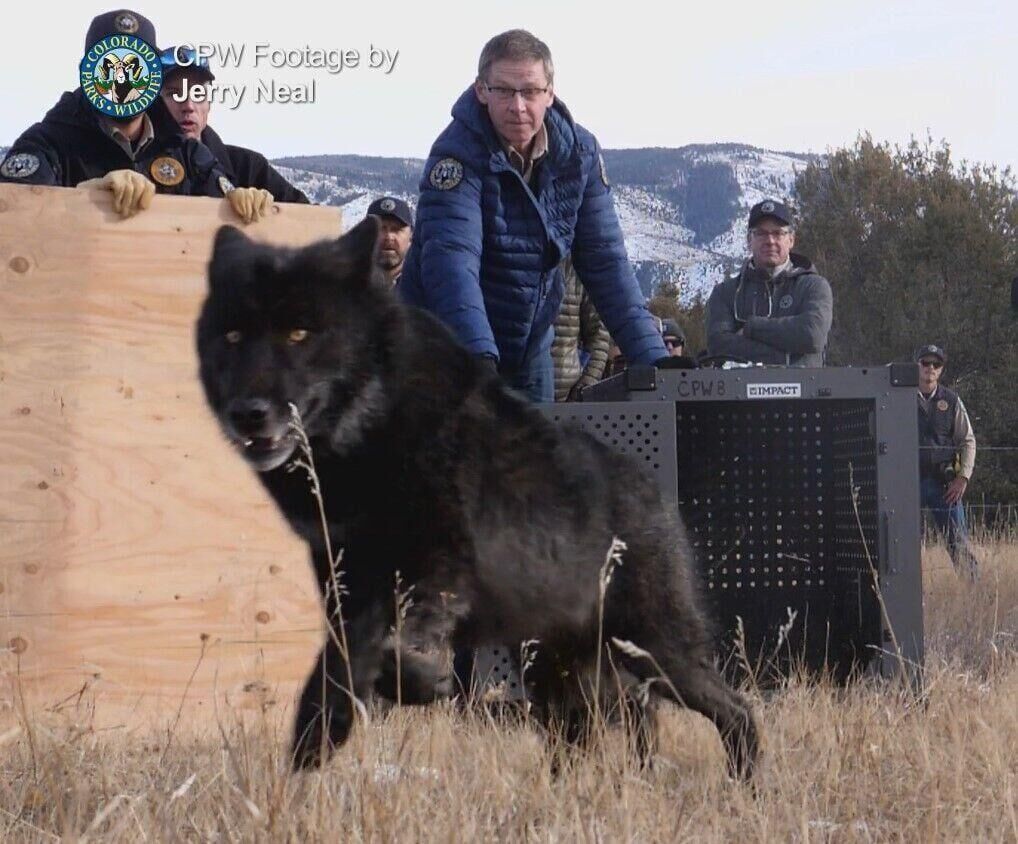Colorado lawmakers grill officials over wolf release communication failures
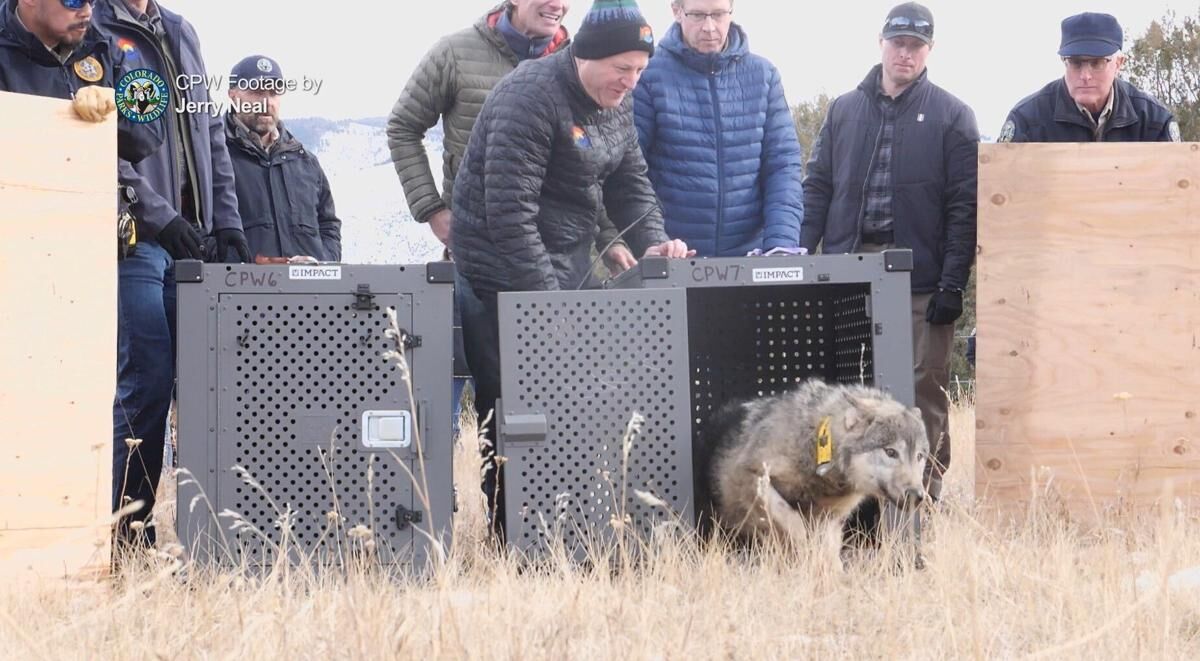
Lawmakers grilled officials from the Department of Natural Resources and Colorado Parks and Wildlife, who found themselves on the hot seat on Wednesday at the state Capitol, where policymakers described communication failures and problems tied to the release of wolves in Grand and Summit counties last month.
The lawmakers said the state mishandled communications over the release and added that destroyed trust with ranchers and landowners. They added those ranchers and landers are now saying they will no longer work with the agency on conservation issues.
Dan Gibbs, chief of the Department of Natural Resources, apologized for the communication failures.
Lawmakers also hammered agency representatives over their refusal to come up with a definition of “chronic depredation” that would allow a Jackson County rancher to deal with two wolves – unrelated to the released wolves – that have killed 16 livestock and four working cattle dogs.
The department and its Parks and Wildlife division took part in annual oversight hearing on Wednesday with the joint agriculture and natural resources committees of the state House and Senate. The hearing was meant to allow for a budget presentation and discussion of agency initiatives and legislative agenda.
But lawmakers on both sides of the aisle focused their attention – and angst – on how the wolf restoration has been handled.
One lawmaker also worried that ranchers would face mental health issues if their livestock are slaughtered by wolves, given that Colorado Parks and Wildlife has so far refused to come up with a way to deal with depredating wolves, other than to tell ranchers to use non-lethal methods that the latter say don’t work.
During a discussion with the Joint Budget Committee about the agency’s budget, Rep. Richard Holtorf, R-Akron, asked whether the JBC plans to double its investment in behavioral health for agriculture producers, “so I don’t have ranchers putting a gun to their head because of what’s coming.”
Rep. Rick Taggart, R-Grand Junction, who replaced Rep. Rod Bockenfeld on the committee, said the agency has made a significant request in that area because of the wolf introduction.
Gibbs, the department head, cited the wolf release as an agency accomplishment for 2023.
But he also apologized for the communication failures over the introduction of the first five wolves, saying he knew it did not meet the expectations of lawmakers and ranchers.
Colorado Parks and Wildlife is finalizing an after-action review to obtain feedback on the wolf release, he said, pledging to do better.
“We can learn from our mistakes and do better as we align with expectations,” he said.
Gibbs also noted his agency is working with the Department of Agriculture to ensure “the state has the resources needed to employ non-lethal wolf management measures within the goal to minimize wolf depredation and livestock loss.”
Don Gittleson, the Jackson County rancher who has lost 20 cows and dogs to wolves, earlier said non-lethal management measures do not work and have not stopped the wolves from killing his cattle.
Sen. Dylan Roberts, D-Frisco, who chairs the Senate agriculture committee, hammered Gibbs and the wildlife officials over the failures tied to the December release. He peppered the officials with questions about whether they had notified the county commissioners in Grand or Summit counties, the town or county officials, any of the ranchers in those counties, or anyone else.
Roberts also noted testimony given at a September meeting of the agriculture review committee, in which CPW’s Jeff Davis pledged that “no one would be surprised” when the wolves were released.
As to the September comments, Davis said no commissioners, county or town employees in Grand County were notified prior to the release, nor any landowners or ranchers.
Reid Dewalt, who manages the wolf program, said he personally notified the state director of the Bureau of Land Management, one of the “major landowners” close to where the wolves were released, on the morning of the release.
“So, is it fair to say that the testimony you gave on September 12th didn’t accurately reflect what actually happened on December 18th as far as notification?” Roberts asked.
“I would characterize it that that part of the testimony you just stated didn’t, but there’s other parts of that testimony that did accurately reflect the communication,” DeWalt said.
Roberts also asked if the wildlife division was in so big a rush to meet the “artificial” Dec. 31 deadline that it took wolves from Oregon that came with a history of killing livestock.
“It was not necessarily clear to me that we were talking about depredation versus chronic depredation,” DeWalt said. “And that’s the piece where we were following our plan and not taking wolves from packs that have a chronic depredation history.”
Colorado Parks and Wildlife does not have a definition of chronically depredating wolves – an issue Roberts raised in a letter earlier this week that talked about the problems Gittleson faces with wolves on his ranch.
Colorado Politics later asked Davis if he had a target number of livestock the agency is prepared to lose before it comes up with a definition of “chronically depredating” wolves. An agency spokeswoman declined to answer. The agency has perennially failed to promptly respond to questions regarding wolves.
Roberts expressed another frustration with how the wolf release was handled – specifically in shutting out local reporters from the December event. He noted there are several newspapers in Grand County but not one of their reporters was allowed to watch the release.
Davis said they sought advice from the Colorado Press Association on who should report on the event, and chose a couple of reporters, including from the Associated Press.
Roberts said the way CPW handled the release has resulted in “an extreme loss of trust and collaboration that used to exist between residents and CPW.” Some landowners are threatening to “close their gates” and not work with CPW anymore, he said.
“We need that local collaboration between private landowners, between outfitters, between communities, both elected and non-elected officials,” Roberts said.
Gibbs said some of the CPW staff are being made to feel like they are criminals by implementing Proposition 114, the ballot measure approved largely by Front Range voters, who live far from the region where the wolves are expected to roam.
Gibbs acknowledged that landowners are telling CPW they won’t work with the agency on conservation efforts. That’s a problem because the majority of wildlife live on private lands, Gibbs said, adding officials want to figure out a way to work with everyone.
“We need to have trust, we need to be responsive and we’re learning,” Gibbs said.
“Please do not release more wolves on the Western slope,” said Rep. Meghan Lukens, D-Steamboat Springs. She also expressed frustration with how CPW restricted who would report on the release. She also directly asked the officials about their definition of chronic depredation.
Davis said officials are looking at the definitions in other states that have wolves. As to the broken trust between CPW and ranchers, Davis said he will attend livestock and Cattlemen’s Association meetings and “show up.”
Lukens also asked about how the agency is tracking wolves and whether CPW would notify ranchers when wolves are nearby.
Davis responded that the collars do not show exactly where a wolf is at a given moment, just where they’ve been. Another issue is that when these wolves reproduce, their offspring will not have collars, and people should expect that there will be wolves without collars.
Colorado Parks and Wildlife on Wednesday published a map that division said would “inform the public, recreationists and livestock producers on where wolves have been in the past month.” The agency said the would be updated with new information on a monthly basis and will reflect data for the prior month, give or take several days.
The maps, the agency said, are created using GPS data collected from the 12 collared wolves in Colorado – the 10 released in December, plus the two that have been killing livestock in Jackson County. During Wednesday’s hearing at the Capitol, CPW said the map shows watersheds where the wolves have been – not exact locations. Notably, the map shows wolves crossing south of I-70, but Davis said the animals have not, in fact, crossed south of I-70 but were on a watershed that crosses south of I-70.
“Your wolf release was a dismal failure for Colorado ranchers and for county commissioners and the communities where these wolves are right now,” said Holtorf, who was visibly angry.
He noted at least five members of the joint committee are ranchers with long memories, and that calves are an easy target for wolves – as Gittleson in Jackson County has learned.
“Putting wolves near ranches is paramount to putting a child predator in a grade school and expecting a different outcome,” Holtorf said. “This isn’t some fuzzy little bunny that we just released in the backyard.”
Gibbs responded that officials have been “working really hard with the agriculture community and really everyone to try to figure out a sweet spot” with the wolf management plan. He said agriculture has had a voice at the table from day one in terms of developing how the state manages wolves.
Rep. Matt Soper, R-Delta, asked how CPW will help visitors who come to Colorado and find themselves in conflict with wolves, and also how the division intends to keep tourists safe from wolves.
“We don’t necessarily expect someone who’s coming here from out of state to bring a firearm, though, I will tell you that makes sense,” Soper said.
Gibbs said he does not believe wolves will have an impact on outdoor recreation or tourism, nor would he bring a gun with him when outdoors out of concern over a possible wolf attack.
“I think we need to start thinking about how we live with wolves” – just like how Coloradans live with moose, bears or mountain lions, he said.
Soper asked if CPW would consider releasing wolves east of the Continental Divide so the entire state gets to have the “full impact.” Davis noted Proposition 114, the ballot measure on reintroduction, dictated that wolves would be released only west of the divide.
Editor’s note: this story has been changed to correct some misidentification in a previous version.

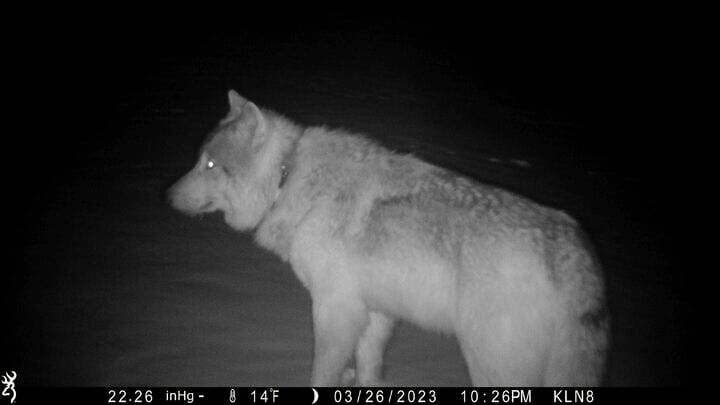


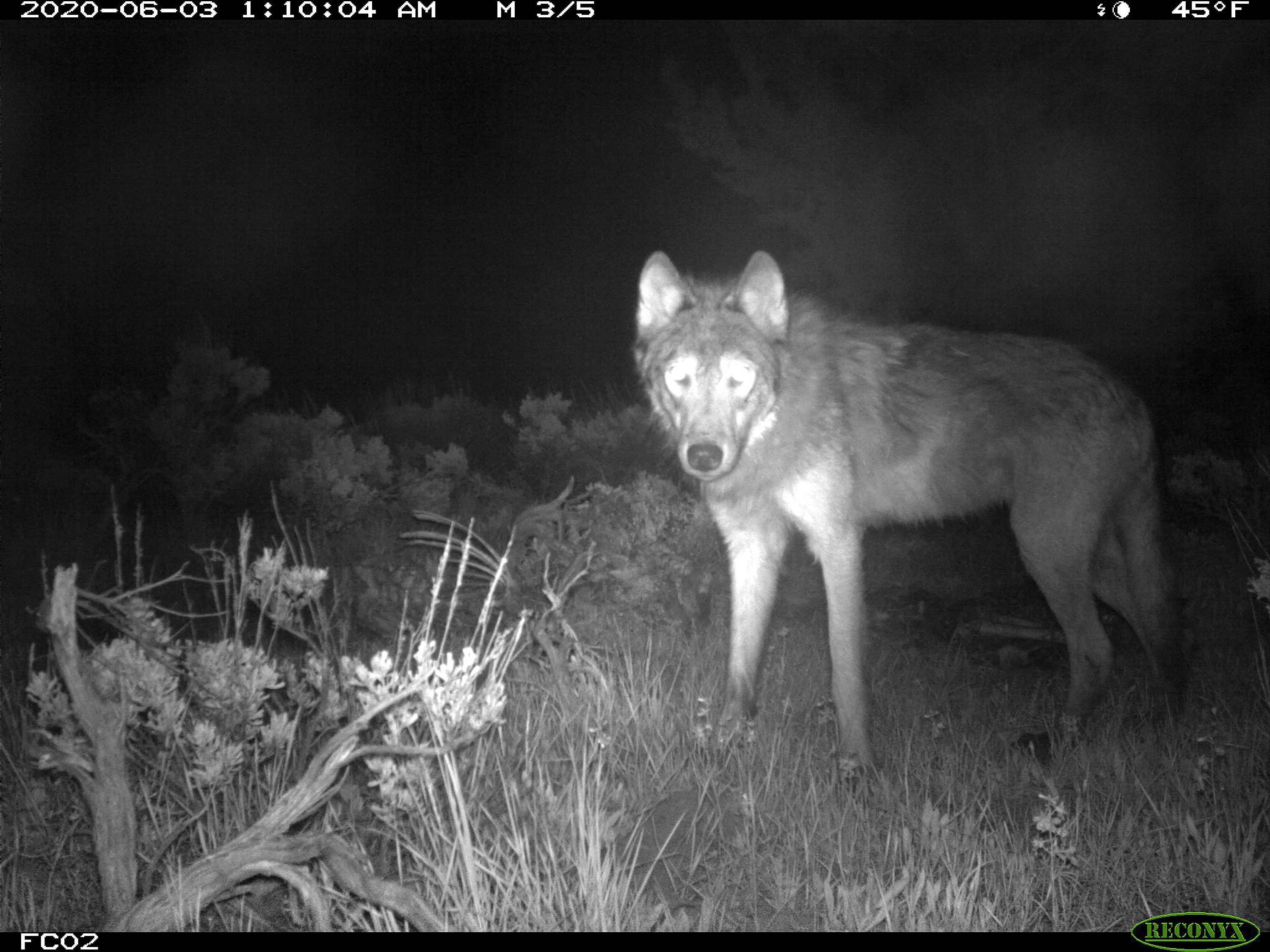
luige.delpuerto@coloradopolitics.com
